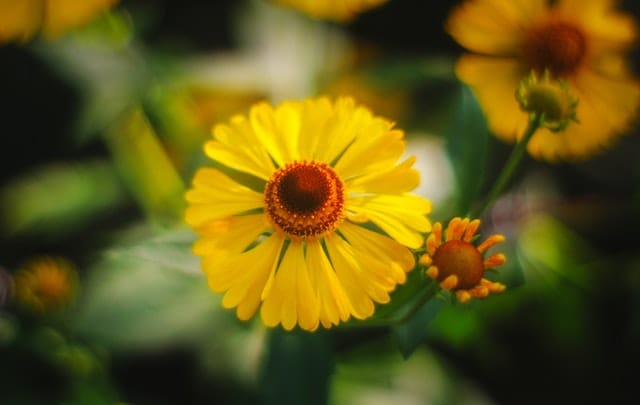Okres wiosennych miesięcy to czas niezwykle radosny, w którym do życia budzi się cała otaczająca nas przyroda. Długie i słoneczne dni, przyjemna temperatura i dochodzący zewsząd śpiew ptaków nie tylko zachęca do spacerów i aktywności fizycznej na zewnątrz, ale także poprawia humor, podnosi poziom optymizmu i wywołuje uśmiech na twarzy. Jednak wiosna to także okres nasilania się różnego rodzaju alergii, na które powinni uważać przede wszystkim seniorzy. Dlaczego wiosenne alergie mogą być dla nich tak groźne? Otóż senior charakteryzuje się mniejszą odpornością i większą ilością chorób oraz schorzeń, a alergie mogą nie tylko nasilić owe dolegliwości, ale także w znaczący sposób zmniejszyć komfort codziennego funkcjonowania. Na szczęście istnieje kilka sprawdzonych sposobów, aby zmniejszyć nieprzyjemności związane z alergią i pomóc seniorowi przetrwać w dobrej kondycji ten trudny czas. I co ważne – każda opiekunka osób starszych może wykorzystać w swojej pracy wiele sposobów na zaradzenie tym dolegliwościom.
Po pierwsze – kalendarz alergika
Łzawienie i zaczerwienienie oczu, kichanie, katar, wysypka, duszności, świąd skóry czy wszelkiego rodzaju stany zapalne – to tylko niektóre z objawów alergii, które mogą przytrafić się seniorowi dotkniętego tą sezonową dolegliwością. Dlatego też pierwszym krokiem opiekunki osób starszych jest poznanie – chociażby w minimalnym stopniu – tak zwanego kalendarza alergika. Co kryje się pod tą nazwą? Otóż kalendarz alergika w sposób bardzo dokładny przedstawia informacje dotyczące tego, jakie rośliny pylą w konkretnych miesiącach. I tak na przykład dzięki takiemu kalendarzowi łatwo można się dowiedzieć, iż już przełom zimy i lata to czas pylenia leszczyny, olszy bądź cisu. W następnych tygodniach do głosu dochodzi topola, dąb, sosna, brzoza czy świerk. Dodatkowo wiosna i lato to ciągłe pylenie chwastów i zbóż. Posiadając taką wiedzę opiekunka może przygotować się do ciężkiego sezonu alergicznego i zaplanować tak swoje czynności, aby maksymalnie pomóc seniorowi. Jeżeli dodatkowo posiada wiedzę, na co konkretnie uczulony jest senior, to taka pomoc może być jeszcze bardziej efektywna. Dodatkowo warto śledzić wszelkie komunikaty i prognozy dla alergików, które pokazują czas pylenia i jego siłę. W ten sposób opiekunka seniorów jest przygotowana na każdą ewentualność.
Po drugie – codzienne czynności zmniejszające dolegliwości alergiczne
Nie ulega wątpliwości, iż wiosna i lato to ciężki czas dla seniorów dotkniętych alergią. Na szczęście opiekunka nie jest całkowicie pozbawiona broni w tej nierównej walce. Czasami wystarczy kilka codziennych przyzwyczajeń i działań, aby ułatwić seniorowi codzienne funkcjonowanie. Wśród nich warto wymienić:
suszenie ubrań i pościeli wewnątrz (co ograniczy kontakt z pyłkami)
unikanie wietrzenia mieszkania w godzinach najwyższego stężenia pyłków (pomiędzy 5 i 8 rano oraz 17 i 19 po południu)
częste wykonywanie prania zadbanie to, aby senior przyjmował odpowiednią ilość płynów (które usuwają alergeny ze śluzówki gardła) częste kąpiele podopiecznego dbanie o to, aby podczas spacerów senior nosił okulary przeciwsłoneczne (co pozwala na ograniczenie kontaktu pyłków ze śluzówką oka) korzystanie z łagodnych kosmetyków, środków higienicznych i piorących (w celu uniknięcia dodatkowego podrażnienia skóry) używanie soli fizjologicznej do nosa (co pozwala na oczyszczenie śluzówki)
odpowiednie nawilżanie pomieszczeń zamontowanie filtrów powietrza.
Dodatkowo – co także jest nie bez znaczenia – warto do diety seniora wprowadzić produkty z dużą zawartością witaminy C. Witamina ta nie tylko zmniejsza produkcję histaminy w organizmie, ale także działa przeciwzapalnie i wzmacniająco.
Po trzecie – leki przeciwhistaminowe
Wielu seniorów – w zależności od objawów i nasilenia alergii – jest zmuszonych do brania leków przeciwhistaminowych. Dzieje się tak wtedy, gdy zastosowane wcześniej metody nie przynoszą wystarczająco dobrych rezultatów. W takiej sytuacji zadaniem opiekunki jest kontrolowanie, aby senior zażywał leki w z określoną częstotliwością i w odpowiednich dawkach. Dodatkowo opiekunka powinna zachować szczególną czujność podczas przyjmowania przez seniora tego rodzaju lekarstw. Środki przeciwhistaminowe mogą wywołać skutki uboczne lub wchodzić w reakcje z lekami przyjmowanymi na inne dolegliwości. W takiej sytuacji opiekunka musi szybko reagować i podejmować odpowiednie kroki. Równie ważnym zadaniem opiekunki jest dbanie o to, aby podopieczny miał dostęp do lekarza specjalisty, który zweryfikuje skalę problemu i zaordynuje odpowiednią terapię.
Alergie u seniorów mogą być bardzo nieprzyjemne, uciążliwe i dodatkowo groźne. Tutaj rola opiekunki jest niezwykle istotna. To właśnie ona może zadbać o wyższy komfort codziennego życia seniora, a w razie konieczności – w odpowiedni sposób zareagować.


Najnowsze komentarze